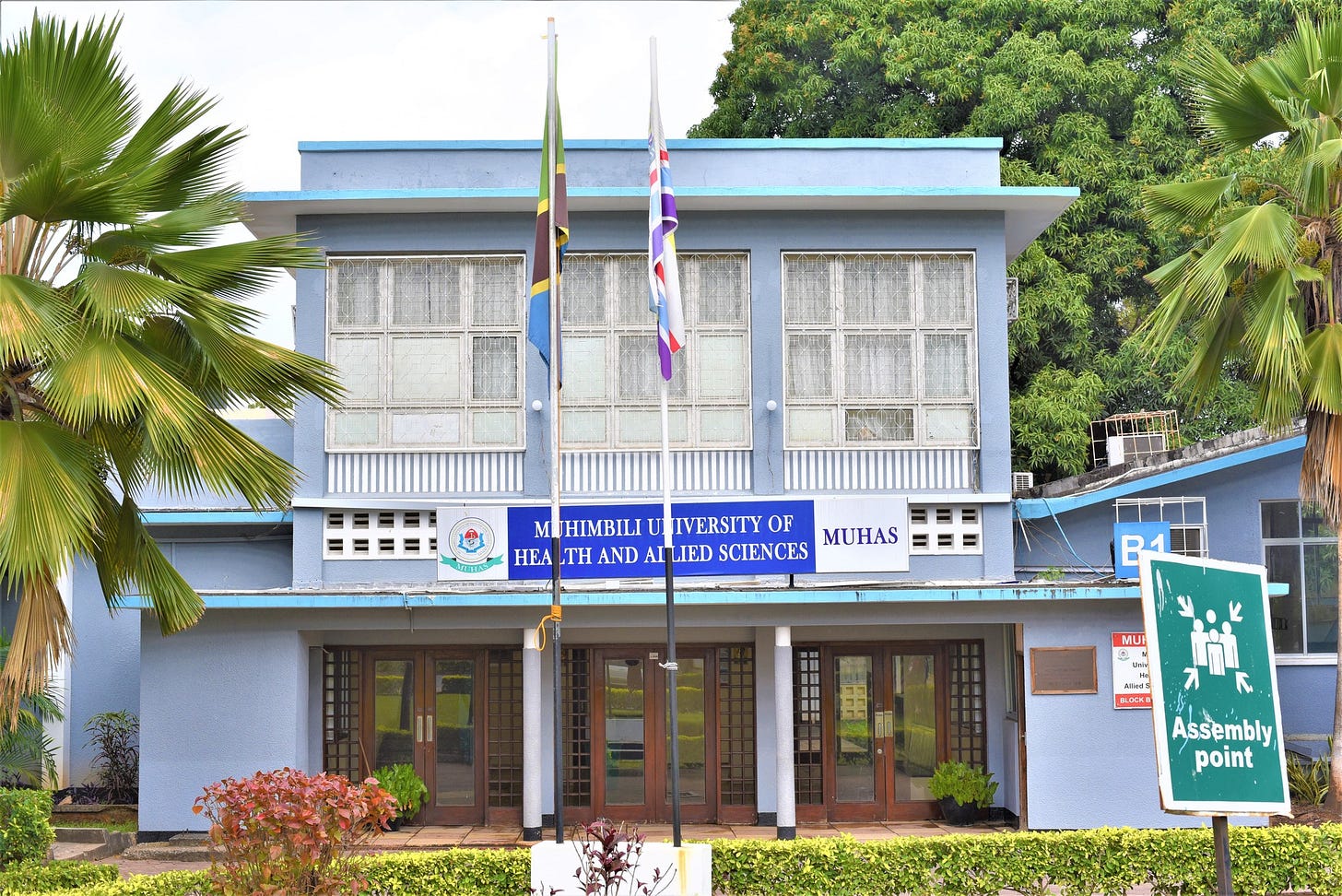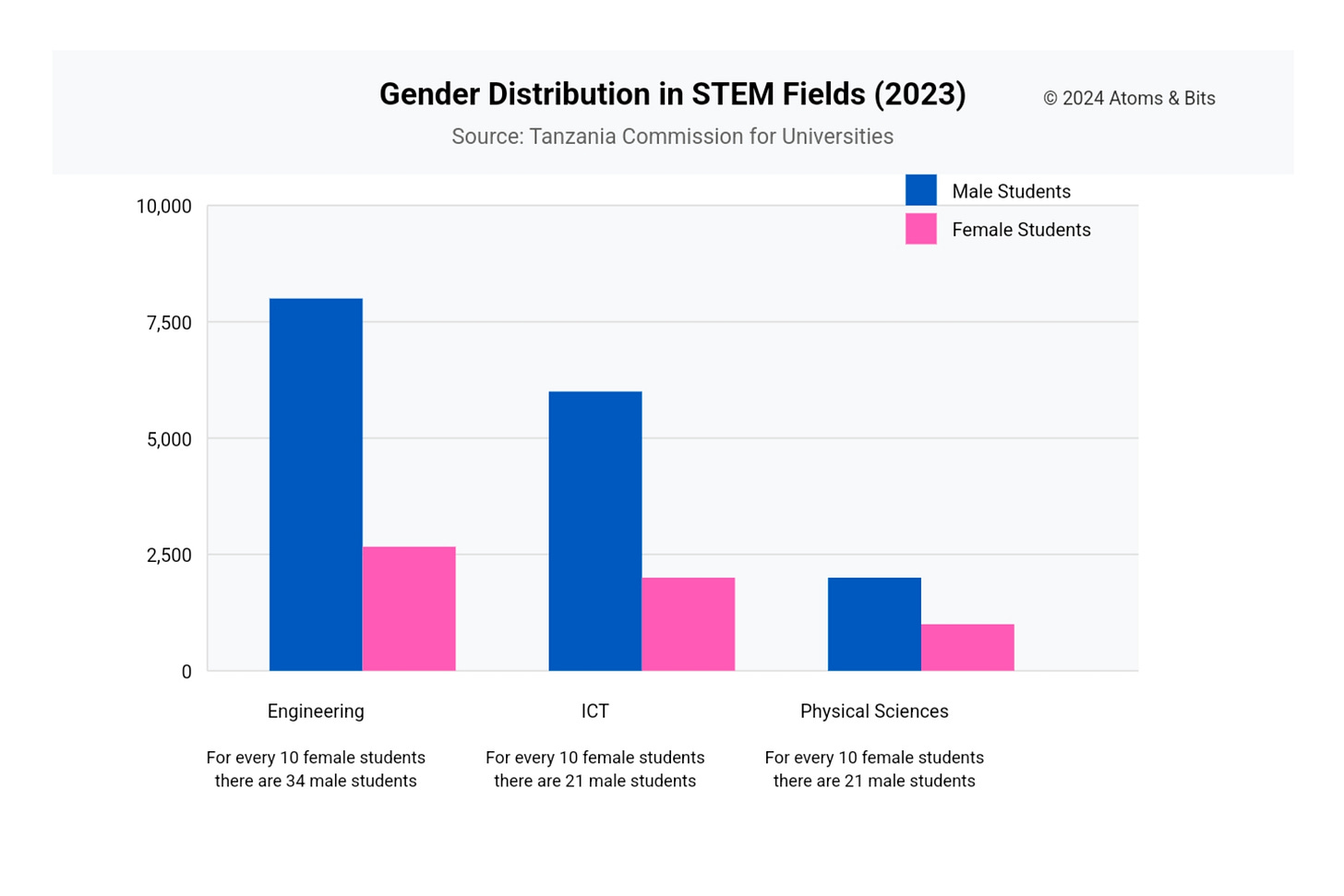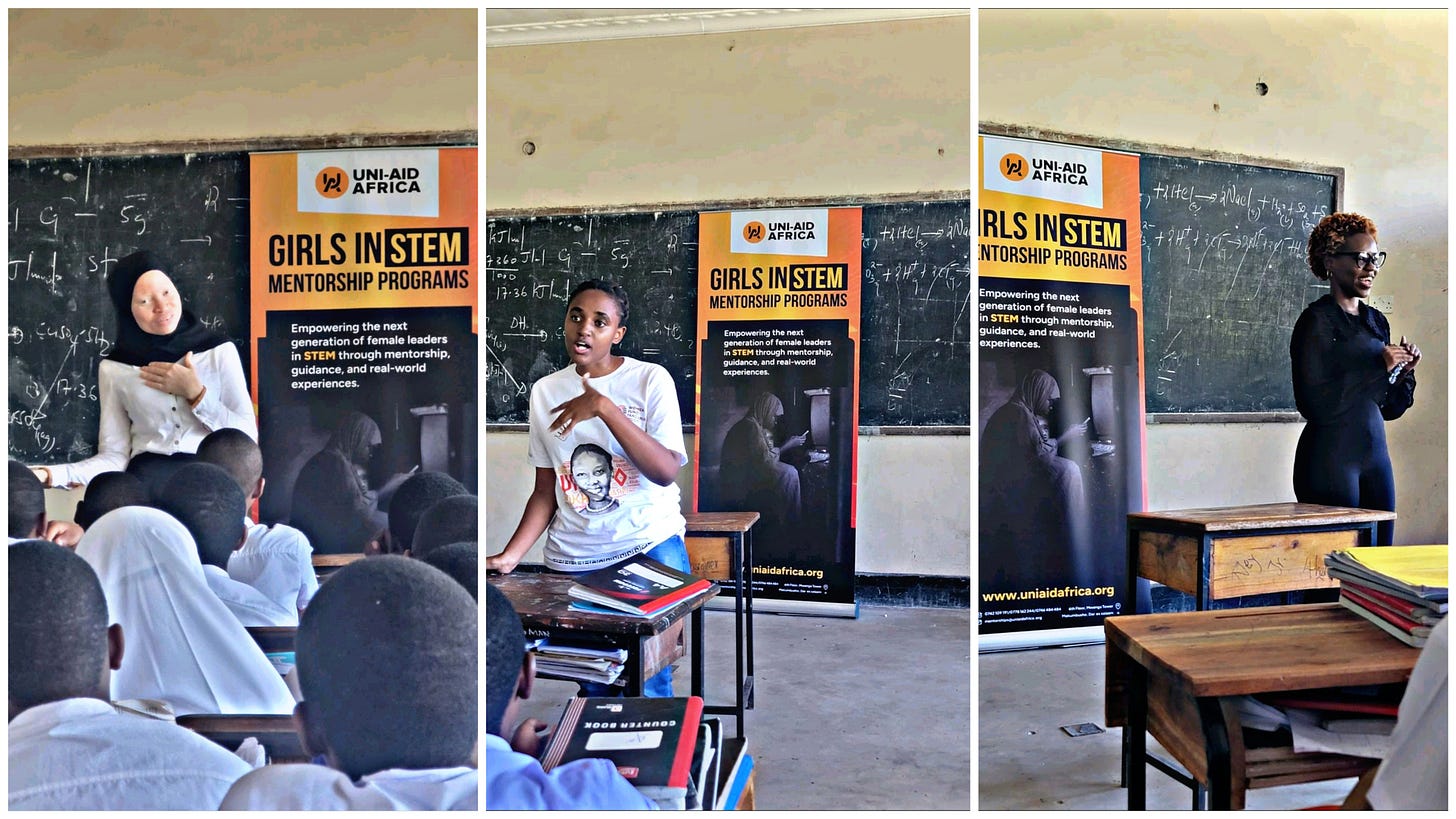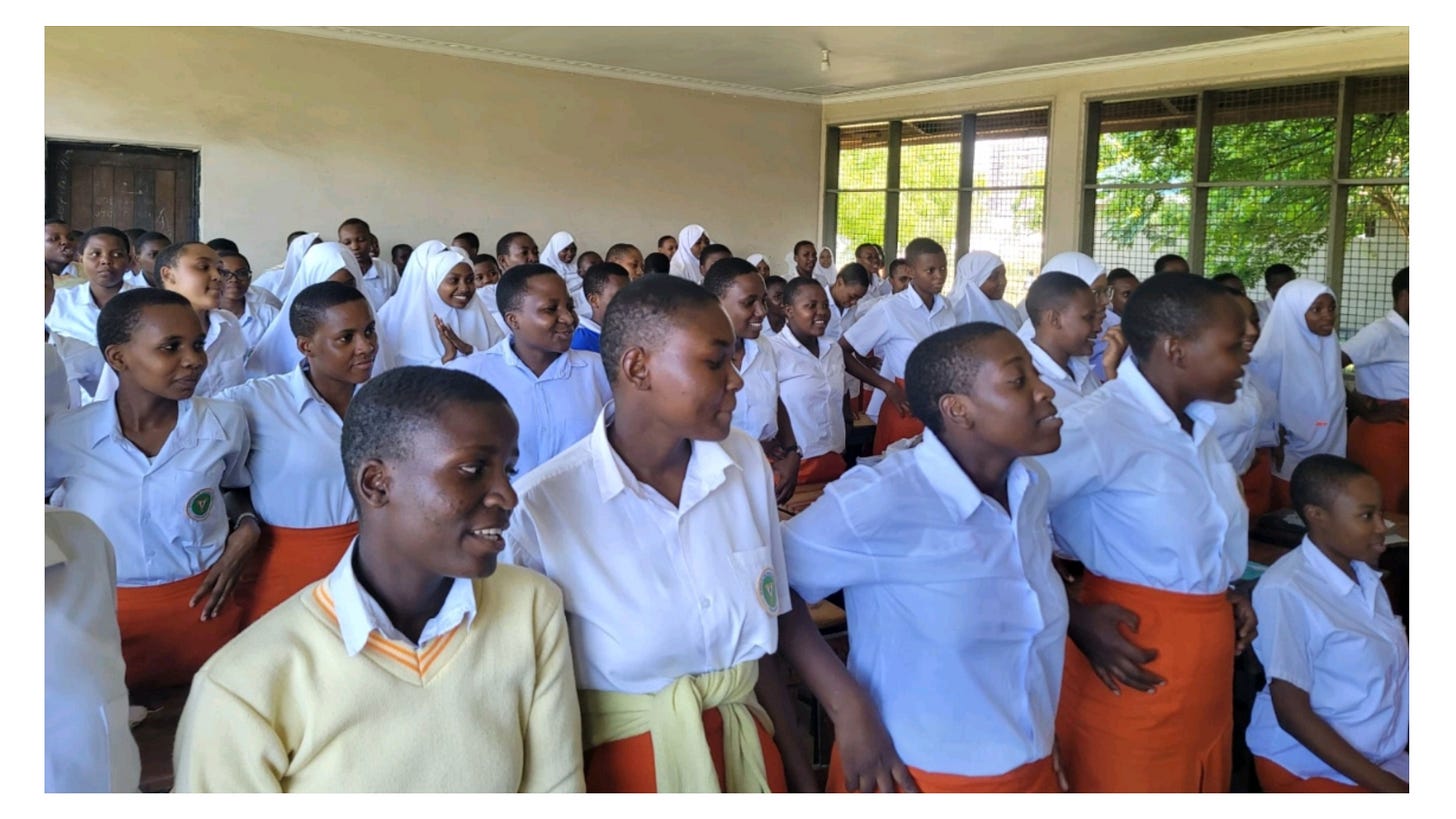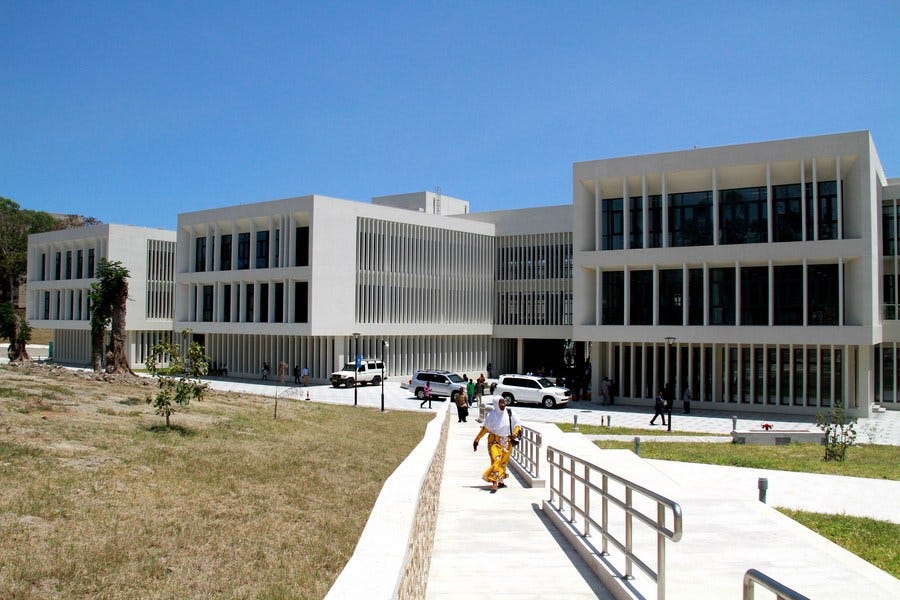After successful hackathon, UNI-AID eyes $12M to fund 1000 STEM scholarships
Rethinking tech education pathways
We're back with our final case study of 2024.
You'll be looking at:
The challenges faced by Tanzanian students.
One company’s efforts to address domestic university gaps.
The State of Higher Education in Tanzania
In 2023, Tanzania had 3.1 million students enrolled in about 6,000 secondary schools.
However, only 335K students could be found in the country's 49 higher education institutions (HEIs). And of this population, nearly half (40%) were admitted in bachelor degree programs that year.
What does it mean?
A surprising 89% of Tanzanians who started ‘form one’ don't make it to university.
Now, that isn't necessarily a bad thing for dropouts who deliberately decided not to get there.
But unfortunately most teenagers have little choice.
Socio-economic factors like early pregnancy, forced marriages, and low household income can terminate their education journey.
"When a student reaches Form One, that's when they begin entering adulthood. By Form Four, they are already a full adult," Dr. Godfrey Malisa, a retired lecturer, says. "They become a burden to their family, why enter Form Five and Six (or college)?”
For the 113.5K teens who overcame pressures and persevered through six years of secondary education (2018-2024), university presents an entirely new set of obstacles.
Thousands of qualified students have either:
Missed university spots
Been denied admission in preferred courses
Due to:
Family financial constraints
Limited capacity of labs, hostels, classrooms, or specialized faculty at Tanzanian HEIs
The government has only budgeted loans for 88,000 freshmen this year.
Meanwhile, our nation's top academic institution—the Muhimbili University of Health and Allied Sciences (MUHAS) merely enrolled 2,997 undergraduates during 2022/2023.
Mwanza-based CUHAS, on the other hand, had 3,570 in 2023/24.
The University of Dar es Salaam (UDSM) and the University of Dodoma (UDOM) each have over 18,000 undergrads (first-year, continuing, and finalists).
For girls pursuing STEM subjects, the barriers multiply.
Tanzania Commission for Universities (TCU) data shows only 14,511 female students enrolled in medicine and health sciences nationwide in 2023, with even lower numbers in other technical fields.
Engineering programs had just 4,074 female students compared to 9,597 males.
So how do we ensure every successful A-level candidate attends college, studying what they want?
UNI-AID's Approach
A new organization believes it has found part of the solution. UNI-AID Africa, launched in July this year, aims to sponsor 1,000 Tanzanian women for STEM degrees at Indian universities.
"Each year, over 20,000 students enroll in courses they aren't passionate about, simply to obtain a bachelor's degree," explains Cypriano Kasese, an experienced development specialist and CEO at UNI-AID.
“For female students with aptitude in STEM, limited university spots mean many never realize their potential.”
The organization has already demonstrated early signs of this untapped talent.
Earlier this month, its first 24-hour female hackathon in Dar brought together 100 participants who developed solutions ranging from Akili Poa's mental health platform to STEMkid's rural education initiative.
But transforming these promising starts into systemic change requires significant resources.
UNI-AID estimates it needs US$12 million to fully fund its scholarship program.
While partnerships with three Indian institutions—MM University, SRM AP University, and KIIT University—provide the academic foundation, the bigger challenge lies in fundraising and selecting students who can maximize this opportunity.
How It Works
Rather than relying solely on traditional donor funding, UNI-AID has designed a comprehensive multi-channel fundraising approach.
It's a strategic combination of institutional partnerships, digital campaigns, events, and community engagement.
"Most education initiatives focus purely on scholarships. We're building an ecosystem," the company cofounder Aloyce Mkwizu, told Atoms & Bits. Since October 2023, this ecosystem has evolved around through three core pillars.”
Corporate Social Responsibility (CSR) Engagement • Will tap into corporate CSR education budgets • Plans structured sponsorship packages for companies • Aims to develop co-branding opportunities • Will establish employee matching gift programs
Development Agency Partnerships • Plans collaborations with education-focused NGOs • Will pursue strategic grants from FUNGUO and iMBEJU • Aims to secure public sector institutional support • Plans to engage ministries of education and technology
Digital Fundraising Campaigns • Will launch global crowdfunding initiatives on GoFundMe • Plans targeted social media donor engagement • Aims to showcase compelling student impact stories • Will implement subscription-based giving options
Strategic Events & Foundation Outreach • Plans STEM conferences and mentorship dinners • Will organize high-impact fundraising galas • Aims to build philanthropic foundation networks • Plans to create donor networking platforms
Community & Grassroots Mobilization • Will activate Youth Ambassadors for local fundraising • Plans to engage schools and community stakeholders • Aims to build active alumni giving networks • Will develop legacy giving programs
Challenges
Cost per student: $12,000
Target: Selecting and preparing 1,000 qualified female A-level candidates
Timeline: Immediate groundwork needed in secondary schools
As noted by Neema Mduma, PhD:
"The challenge is not finding talented girls; they're everywhere. The dare is building support systems that prevent them from dropping out before reaching university."
Dr. Mduma serves as:
UNI-AID Board Member
Founder of the BakiShule Project
Senior Lecturer at the Nelson Mandela Institute of Science and Technology (NM-AIST)
PILOT RESULTS
Beyond scholarships and fundraising, UNI-AID has developed initiatives targeting specific friction points in Tanzania's STEM pipeline.
At Jangwani Girls Secondary School in October 2024, the organization piloted a mentorship program that brought together a:
Medical doctor
Business analyst, and
Psychotherapist
What for? To share their journeys in technical fields.
SUCCESS STORIES
The mentorship results revealed both problems and opportunities.
Students heard firsthand experiences from professionals like:
Irene Mukoi, who completed her studies despite spending significant time in medical treatment
And Kuduishe Kisowile (MD), who highlighted the pioneering path of Tanzania's first female doctor in 1969.
Expansion Roadmap
Individual mentorship alone won't create systemic change.
By 2030,
UNI-AID plans to:
Expand its reach to East and Southern Africa
Target countries with similar gender disparities in STEM education
TCU data provides context for this ambition. Of Tanzania's 1,842 students pursuing life sciences degrees in 2023, only 746 were female.
To strengthen its regional expansion, the organization aims to establish Regional Centers of Excellence in STEM Education (RECESE).
These hubs will serve as focal points for training, research, and innovation while encouraging cross-border collaboration.
The organization must also navigate complex regulatory requirements.
Since February 2024, Tanzania's Commission for Universities has required all overseas student recruitment agencies to register formally.
That's a process UNI-AID completed after the first 24 approved organizations.
Endurance Plan
UNI-AID's sustainability strategy extends beyond the initial $12 million fundraising goal.
Its SACCOSS aims to serve multiple functions:
Providing low-interest loans for living expenses during studies
Offering startup capital post-graduation
Creating a self-sustaining pool of resources for future beneficiaries
Success of this model relies heavily on graduates securing employment in high-demand fields.
Here's a summary of the company's expansion timeline, according to internal documents we obtained:
2025: Launch chapters in 10 additional East and Southern African countries
2027: Expand to West Africa
2030: Establish operations across Africa, targeting over 50,000 girls in STEM annually
This continental vision builds on demonstrated interest.
UNI-AID's database already tracks admissions of Tanzanian girls to Indian universities, mirroring successful models like Kenya's and Uganda's education pipelines to foreign institutions.
But questions remain about scale and sustainability.
Can a volunteer-driven "Yellow Movement" raise consistent funding?
Will the planned financial cooperative generate sufficient returns?
Most critically, can UNI-AID build the support systems needed to ensure scholarship recipients complete their studies and contribute back to Tanzania's development?
The answers to these questions will determine whether that represents a turning point for women in Tanzania's STEM fields, or another well-intentioned initiative that couldn't overcome systemic barriers.
Further Reading
Tanzania Commission for Universities (TCU), "VitalStats 2023." [Link]
Mwananchi, "Wako wapi wanafunzi 538,526 waliotakiwa kufanya mtihani kidato cha sita." [Link]
Karolinska Institutet, "Muhimbili University of Health and Allied Sciences (MUHAS).” [Link]
MUHAS, "Annual Report 2022-2023.” [Link]
Catholic University of Health and Allied Sciences - Bugando, "Vital Statistics." [Link]
Higher Education Students' Loans Board (HESLB), "Orodha ya Kwanza ya Wanufaika 2024/2025." [Link]
Tanzania Commission for Universities (TCU), "Registered Overseas Student Recruitment Agencies as of February 22, 2024.” [Link]
UNI-AID AFRICA LinkedIn, "What Exactly is UNI-AID AFRICA? Let Us Break it Down for You." [Link]
UNI-AID AFRICA, "Our University Partners." [Link]
UNI-AID AFRICA, "24-hour Female Hackathon Concept Note.” (Internal document obtained by Atoms & Bits on November 2).
UNI-AID AFRICA, "Sustainability Plan 2024-2029." (Internal document given to Atoms & Bits on December 22).
This article is part of our ongoing coverage of Tanzania's education technology industry.




